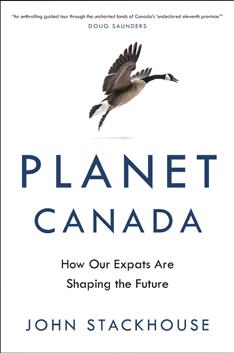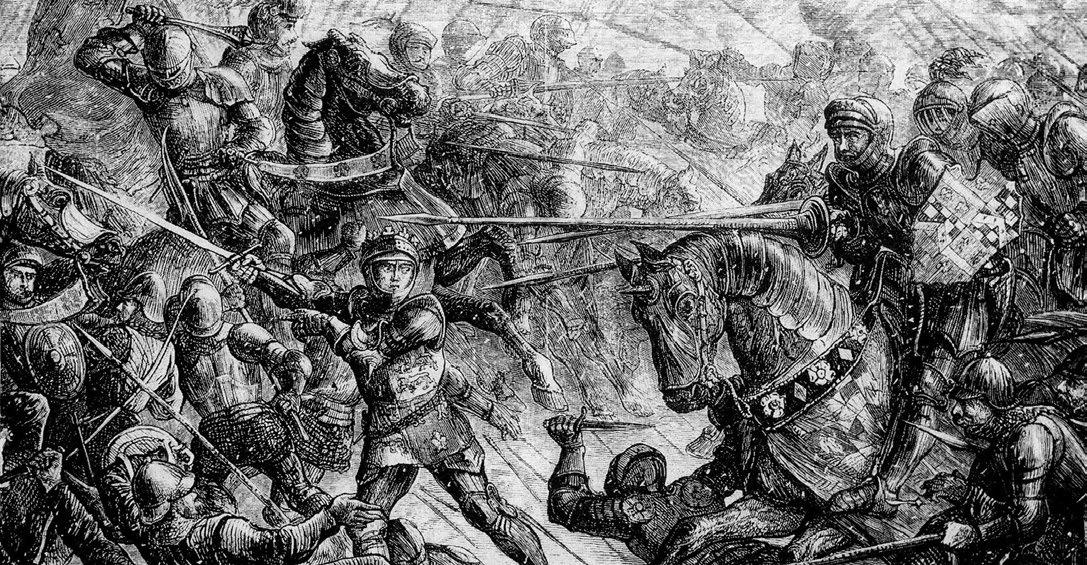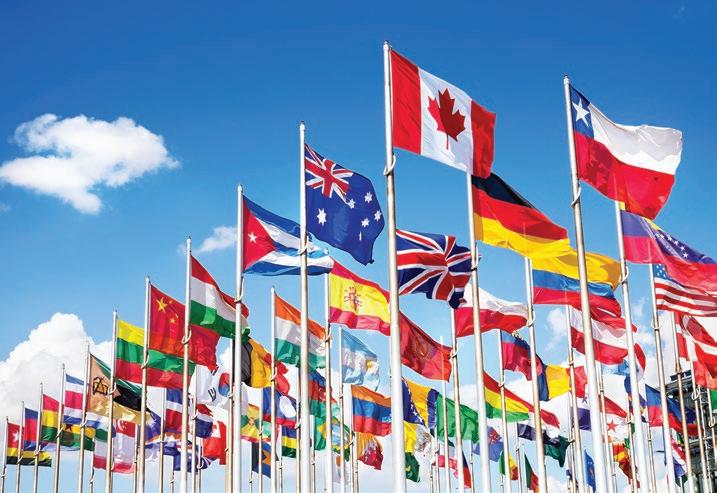
19 minute read
DELIGHTS
Expats: A secret weapon waiting to be discovered
Christina Spencer
Advertisement
Planet Canada: How Our Expats Are Shaping the Future
John Stackhouse Penguin Random House Canada, 2020 351 pages Hardcover: $35 eBook: $16 .99 Audiobook download: $32
At any given time, approximately 2 .8 million Canadian citizens live abroad . Many are engaged in innovative — and lucrative — work . They’ve led some of the world’s great academic institutions, such as Princeton, Berkeley and Johns Hopkins . They’ve run the British Royal Mail and the Bank of England . They’ve long been influential in Hollywood: Think James Cameron, Jack Warner, Louis B . Mayer, even Alex Trebek . And there are a quarter-million Canadians working in Silicon Valley alone, focused on everything from developing computer language to firing up the global internet gaming industry .
What should Canada make of all these talented expats? Federal policymakers act as if they’re simply irrelevant . Some in industry or academia think they represent a serious brain drain . Author John Stackhouse offers a third view: that the Canadian diaspora is a potential champion of this country’s reputation and influence in an increasingly borderless global economy .
Planet Canada presents that case through an array of interviews Stackhouse has conducted in recent years with Canadians in high-powered positions abroad . Not only do many of them believe their singularly Canadian character traits have helped them succeed (polite, humble, good listeners — people really do seem to value these stereotypical attributes), they are also genuinely puzzled as to why policymakers at home haven’t tried harder to leverage their success .
One example is a group of energetic Canadians working in Silicon Valley . Rattling off a head-spinning list of expats who have made a mark there — for instance, Carleton University grad Shona Brown, one of the first Canadians at the Googleplex; Ottawa-born Rachel Potvin, responsible for the infrastructure that hosted all of Google’s code; Montrealer Patrick Pichette, former top executive at Bell Canada whom Brown recruited — Stackhouse explains how Canadians in all sorts of hightech firms, from the big names to startups, found each other, then connected into a group they dubbed the C-100, a “leading voice for Canadian entrepreneurs at home and abroad .” The C-100 has helped improve some aspects of Canadian domestic policy, such as endorsing fast-track visas so Canada’s entrepreneurs can more easily recruit the people they need from other countries . One member kickstarted an artificial intelligence initiative for Canada .
Famous Canadians, such as Mark Carney (shown here), who served as governor of the Bank of Canada and then lived abroad as governor of the Bank of England, are potential champions of this country's reputation and influence, according to author John Stackhouse.
People networks of this sort are replacing institutional (read: governmental) networks in global influence, Stackhouse asserts . Yet Ottawa never called Brown, or most of the other high-powered Silicon Valley expats, to help promote Canada in the world, even though these people are mostly more than willing to be recruited in that effort .
One example of the sort of expat Canadians should pay attention to, Stackhouse says, is Adam Boyes, a globally successful, ambitious internet-gaming developer

who has used his “Canadian intuition for diplomacy and accommodation” to plug into the worldwide supply chain . With 600 active gaming developer studios on its own soil, Canada has huge international opportunities, Stackhouse writes, and people such as Boyes could be “the industry’s best ambassadors, connecting our developers and designers to this virtual form of globalization .” But we don’t take advantage .
In England, at Cambridge and Oxford, he makes the rounds of the brilliant young Canadians innovating in fields ranging from artificial intelligence to blockchain . These are the sorts of people “who could lead this country through the 2020s and ’30s .” Again, though, neither they, nor the author, see any sign of Canada reaching for their help .
Flip to Asia . Even Mark Roswell, the most famous Canadian in China — known better as the hugely successful comedian Dashan — says he is occasionally used as a goodwill ambassador, but “feels we treat him like a prized trophy, to be pulled out at key moments to impress our hosts and guests alike .”
Why, exactly, should Canada reach out to citizens who have chosen to build their futures elsewhere? In part, Stackhouse argues, it’s because even abroad, these people spread solid Canadian values . Raefer Wallis, for instance, a Canadian architect who has enjoyed great success in China, also pushes green building values, even creating a hugely successful database of sustainable materials . Expat tech-guru Pichette organized a group of investors

Comedian Mark Roswell, known better as Dashan, is occasionally used as a goodwill ambassador for Canada.
to buy 65,000 acres of land in western Quebec near Montebello, the area known as Kenauk, which they then gave to the Nature Conservancy of Canada to protect . Joanne Liu, as president of Doctors Without Borders, lobbied for more international support in the fight against Ebola . If Canadians value these sorts of initiatives, we should take an active interest in the work of our expats .
Moreover, Stackhouse argues, Canada needs them . In the modern era, “our place in the world is fading .” Canada has become “irrelevant — gone from a onetime preferred destination to a distant land that can be ignored .” So, for example, when our Global Affairs minister tweeted out criticism of Saudi Arabia over human rights in 2018, the kingdom retaliated by taking a wrecking ball to its long-time



Upwards of 28,000 may have died at the Battle of Towton, depicted here, during the Wars of the Roses.
medical residency program in Canada . When Canada arrested Huawei CFO Meng Wanzhou on an extradition request from the United States, Beijing punished us by arresting two Canadians, who still languish in prison . “If we aren’t important, we can be impugned,” Stackhouse argues . So why not harness the power of our smart, successful expats — and even encourage young Canadians to spend time out of country — in order to help build relationships and show the world just how valuable we are . “We’re heading into an age that will be more interconnected than humanity has ever known, and yet Canada won’t be one of those connectors if we’re not out there in greater numbers,” he writes .
It’s not like taking advantage of our diaspora is some revolutionary notion . Other countries — from Armenia to India, from Ireland to Israel, from Finland to Estonia, and of course China — have welldeveloped diaspora strategies . Some even have full federal departments for overseas citizens . Some grant representation to them in their parliaments .
It may be, as we often say of ourselves in flattering terms, that the world needs more Canada . If so, Canada needs to convince the global economy of that, not simply assume it as a given . Our expats, an elite Stackhouse describes as “among the best in the world,” are a secret weapon still waiting to be discovered .
War: How Conflict Shaped Us
Margaret MacMillan Penguin Canada, 2020 312 pages Hardcover: $46 .33 Kindle: $16 .99
Who knew that Czar Nicholas II, the unfortunate Russian ruler who would eventually be executed with his family in 1918 when the Bolsheviks took power, was an early arms-control proponent? In 1898, he invited the great Western powers to discuss limits on certain weapons . They met in The Hague the following year, reaching modest agreement on outlawing asphyxiating gas and dumdum bullets, and they discussed humane treatment of prisoners of war .
The meeting wasn’t a resounding success, but over the decades it led to more attempts to tamp down some of war’s worst excesses . The Hague Conventions, the Geneva Conventions and other “rules” of conflict are today a vital part of the way humans try to approach war .
Still, we are far from fully understanding — let alone controlling — our impulse to fight, as historian Margaret MacMillan argues in this (not totally grim) examination of how conflict has shaped human history and been shaped by it .
For most of the current generation in the West, which hasn’t fought major wars on its own soil, it’s “all too easy to see war as something others do,” she writes . While we love war stories, movies and games, for the most part “we do not want to fight wars .” Relegating the issue to the world of entertainment isn’t going to make it go away, however . We need to understand much better the place war occupies in our history, culture and, indeed, our very nature, MacMillan argues, lamenting that most Western universities neglect this kind of study .
War: How Conflict Shaped Us, helps the general reader make a start . Based on the BBC Reith Lecture series, which MacMillan delivered in 2018, each chapter focuses on one theme: the evolving technology of war; the impact on civilians; what motivates soldiers to fight; attempts to control or set rules for war; conflict and the arts; how we commemorate wars; and so on . And each is illustrated with snippets from the battlefields of Greece, Rome, Europe and Asia .
From our modern vantage point, for instance, it’s interesting to read that the bloodiest single day of conflict for the United States occurred not in Vietnam or the world wars, but during the American Civil war, in 1862 at Antietam Creek, Maryland . Between 1,500 and 2,700 Confederate soldiers died (with thousands more injured); about 2,000 Union soldiers were killed (and almost 10,000 injured) . Britons, meanwhile, can look centuries back to the Wars of the Roses, where, in
Towton, near York, “the bloodiest and biggest battle ever fought in England” took place in 1461 . Up to 28,000 people may have died there, with more wounded or killed in the aftermath . Comparing the population of England then with the modern era, a similar proportion of dead today would be about 784,000 people .
Yet battle, “the most organized of human activities,” as MacMillan dubs it, has brought not just carnage, but benefits, notably flattening social inequalities over time as Western governments profession-

alized their armies . This required them to provide proper meals, health care and education to a range of soldiers and broader society, and even open up the officer class beyond the nobility . Women, who moved in during war to do jobs men were no longer available for, began to assert their role beyond that of wife and mother .
Women were fighters too: Archeological evidence points to the Amazons, for instance, as real, not mere legend . Among the fierce Scythian warrior riders of Ancient Greece, women appeared aplenty; 37 per cent of Scythian burials were of female fighters . Viking women warriors have also been uncovered . In the Second World War, the Soviet air force had three all-women units, one of which was called the “night witches” by the Germans . About 27,000 Soviet women fought as guerrillas against the Germans, and in Italy perhaps 35,000 women were among the partisans .
MacMillan rhymes off many horrific numbers associated with conflict: In the First World War, nearly 70 million men were mobilized (40 per cent of the male populations of France and Germany alone) . In the Second World War, 286,000 tanks, 557,000 combat aircraft, 11,000 major naval vessels and at least 40 million rifles were made . Fifty million to 80 million civilians died in the Second World War; up to 300,000 were killed in the Japanese sacking of Nanjing in 1937 . Today, there are more than two billion small arms in the world . China’s defence spending has risen sharply in the past two decades;

Soviet pilot Irina Sebrova flew 1,008 sorties in the Second World War, more than any other member of her regiment. About 27,000 Soviet women fought as guerrillas against the Germans.
the U .S . allocates nearly two-thirds of its discretionary budget to defence .
Notes MacMillan, “ . . . serious disarmament measures remain more distant than ever . Yet so many of us, our leaders included, still talk of war as a reasonable and manageable tool .” Even Czar Nicholas knew it was not .
Restoring Democracy in an Age of Populists and Pestilence
By Jonathan Manthorpe Cormorant Books, 2020 299 pages Kindle: $10 .69
Nineteen eighty-nine was an extraordinary year . The Berlin Wall crumbled . Russia finally left Afghanistan . Key members of the African National Congress were freed by the apartheid regime . And academic Francis Fukuyama wrote The End of
History? — his iconic essay on the triumph of liberal democracy .
Other events, mind you, weren’t so promising . Political protests in China ended in the bloodletting of Tiananmen Square, and al-Qaeda established its first cell in New York City . But all in all, the future of free societies looked bright .
Today, a little more than three decades later, democracy’s prospects look distinctly dimmer — under threat from Russian internet trolls, a bellicose China and domestic extremists . Civil political discourse has become increasingly difficult, even in nations that deeply value free speech .
Why, and what can be done? In Restoring Democracy, Jonathan Manthorpe reviews some key world events of the last 30 years — many of which he covered as a foreign correspondent — to hunt for answers .
Unlike his last book, Claws of the Panda, rich in revelations about China’s ballooning global influence, this work leans on information a reasonably informed person is familiar with . But Manthorpe’s distillation of recent history into easily absorbed chapters, buttressed with authoritative studies and statistics, makes it a useful baseline from which an interested reader can dig further into the political, social and economic malaise undermining democracy today .
Topping the list of concerns, in Manthorpe’s view, are inequality and the growing disparity of wealth — the big crisis democratic governments have allowed to fester by their blind devotion to capitalism; the one predicament they simply must confront if liberal society is to survive . For instance, he cites an Oxfam study for the 2019 World Economic Forum in Davos that concluded, “in the previous year, the 26 richest people on Earth had the same net worth as the poorest half of the world’s population (about 3 .8 billion people) .” For the 2020 Davos meeting, Oxfam reported the 22 richest men in the world “have more wealth than all the women in Africa .” (Canada has its share of disparity too, he writes, citing the Conference Board: “The richest one per cent of Canadians took almost a third of all income gains from 1997 to 2007 — the decade with the fastest-growing incomes in this generation .”)
For those in the West not among the wealthier classes, but also not necessarily poor, the growing income gap breeds anxiety about their own future: fear of immigrants, of new technologies, of elites, and of government in general . It’s this vague dread that has propelled authoritarian leaders, from Hungary’s Viktor Orbán, to Brazil’s Jair Bolsonaro, to former U .S . president Donald Trump, into power . Citing U .S . voting data, Manthorpe notes that Trump “was supported by well-off people who looked at the plight of the less fortunate people around them and feared for their own future .”
But Manthorpe takes us back further, on a historical tour through the free-market era of Thatcherism and Reaganism (he is no fan of the economists who influenced them, notably Friedrich Hayek and Milton Friedman) to the failure of the Obama administration to respond effectively to the 2008-09 economic crisis, to the tone-deaf

reaction of French President Emmanuel Macron to the yellow-vest economic protests . Chapters dissecting the triumphant hucksterism of Boris Johnson in the U .K . and Trump in the U .S . round out the lessons .
There is also a meditation on the failures of journalists, who have misread the public mood time and again, and on the democratically destabilizing policies of China’s international programs and Russian troll farms working, from the outside, to sow confusion and conflict in the politics of democratic countries . Some Western strategists, such as Trump puppet-master Steve Bannon, embraced these tactics . Manthorpe quotes from an interview Bannon gave to author Michael Lewis: “The Democrats don’t matter … The real opposition is the media . And the way to deal with them is to flood the zone with shit .”
COVID-19, oddly enough, helped unmask some of the pretenders: The tactic of distorting facts in order to confuse and divert people simply doesn’t work in the face of a pandemic . “COVID-19 was the agent that stopped both Trump and Johnson in their tracks …Trump was caught in a trap of his own making,” writes Manthorpe . “His populism was built on railing against experts and the media, both of which were now essential to overcoming COVID-19 and informing the public about how to do it .”
Reviewing the problems of democracy may be the “easy” part, however . Manthorpe spends somewhat less time spelling out solutions, though his roundup includes many ideas actively under public discussion .
Education, for one: Teaching people how to better distinguish fact from fiction, and how to evaluate critically the messaging with which we are all bombarded . Better social programs, such as the introduction of a universal basic income to address the inequalities the author believes underlie so much of the fear on which authoritarianism thrives, is another .
Overcoming government mistrust and the sense of detachment that this brings would help too; here, Manthorpe runs through a list of reforms actively under discussion among many political scientists, such as re-empowering disrespected MPs, reining in the plethora of unaccountable boards and agencies in government — even compulsory voting to make citizens pay attention to their vital watchdog function .
“There was never a golden age when democracy functioned perfectly, and there never will be . Even so, the contemporary dislocation between the establishment and the citizenry among the countries of the North Atlantic is very real,” Manthorpe warns .
He is hardly the first writer to say this . But then, it cannot be said often enough .
Rogue Diplomats: The Proud Tradition of Disobedience in American Foreign Policy
Seth Jacobs Cambridge University Press, 2020 395 pages Hardcover: $39 .95
The last people you might consider to be rebels are those who toil in the realm of diplomacy . But you’d be wrong — at least in reference to American diplomats . For example, when U .S . president Andrew Jackson fired his top diplomat to Mexico, Anthony Butler, in 1834, Butler simply ignored him “and remained at his post for two more years, repeatedly attempting to purchase Texas (from the Mexicans) despite having no authority to do so .” Another diplomat, Elijah Hise, who was
supposed to negotiate trade treaties with Guatemala and El Salvador on behalf of president James K . Polk, racked up a deal with Nicaragua instead .
In this entertaining romp through the selective history of U .S . diplomacy, Boston College professor Seth Jacobs explores why and when American diplomats deliberately disobeyed instructions from their presidents . Further, he asserts that some of the U .S .’s greatest strategic triumphs early in its existence came about precisely because envoys ignored or disobeyed their orders . No surprise, he reveals that this misbehaving sentiment is unique to Americans; diplomats from other Western countries “almost never displayed comparable refractoriness .” Pity, perhaps .
Leaders Who Lust: Power, Money, Sex, Success, Legitimacy, Legacy
Barbara Kellerman and Todd L . Pittinsky 255 pages Cambridge University Press, 2020 Hardcover: $33 .95
Leaders, we’re told, “are supposed to have a range of admirable qualities . One of these is moderation .” The leaders described in this book, however, are anything but moderate in pursuit of their ambitions, which cover the realm of business, sports, politics and global influence . The authors break them into groups: those with a lust for power (China’s Xi Jinping, for instance); for money (Warren Buffett, say); for sex (John F . Kennedy, or Italy’s Silvio Berlusconi); for success (Hillary Clinton and recent Super Bowl champ Tom Brady); for legitimacy (Nelson Mandela); or simply for legacy (Bill and Melinda Gates) .
“Lust” is what the authors call a “psychological drive” so great that even when the goal has been achieved “there is relief, but only briefly .” Of Xi’s success in accumulating power, for instance, they write “his appetite grew with eating .” Of Kennedy’s sexual behaviour, they note “he had no apparent want or need to rein it in .” Of Hillary Clinton’s lust for success, they note, she was “sometimes rewarded — and sometimes censured .” Mandela’s quest for legitimacy, even after his retirement from politics, led to change “of singular consequence” for Black South Africans . Without this ceaseless, burning intensity, these and other leaders would not have had the focus and motivation to become world-class figures . Steven Heighton Biblioasis, 2020 207 pages Paperback: $22 .72
“I’m still not sure why I’m here, beyond a wish to do something useful, involving flesh and blood people instead of invented characters and words on a screen,” writes Canadian novelist Steven Heighton near the beginning of his non-fiction Reaching Mithymna . It is 2015 and he has just arrived in the deserted tourist town on the Greek island of Lesbos, to help on the front line of what the world has come to know as the Syrian refugee crisis . And almost immediately, he is thrust into helping as boatloads of desperate Syrian refugees begin to arrive .
Though he speaks a bit of Greek from his mother’s side of the family, Heighton is poorly qualified for volunteer work in the realm of international crisis aid . Yet he finds himself navigating the island with groups of bedraggled survivors, trying to translate, and playing paramedic when no other medical help is around . Heighton brings other unique qualities, of course: a keen sense of observation, openness to experience and powerful writing that, combined, offer a disturbing glimpse at a gritty, real-world crisis of staggering proportions and the people caught up in it .
Christina Spencer is the editorial pages editor of the Ottawa Citizen and the inaugural recipient of the Claude Ryan Award for Editorial Writing at the 2017 National Newspaper Awards . She has a master's in international affairs from the Norman Paterson School of International Affairs at Carleton University .












